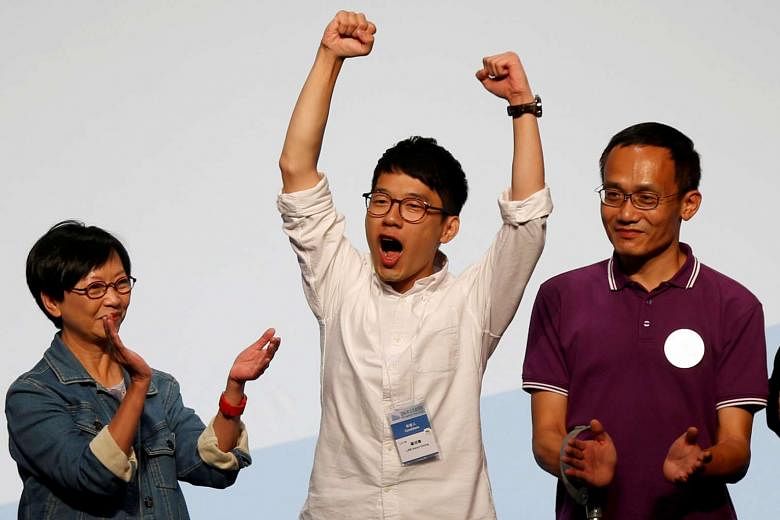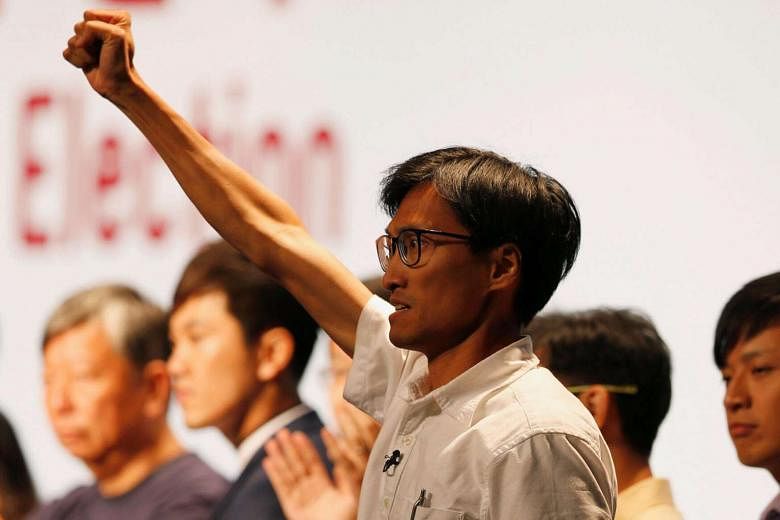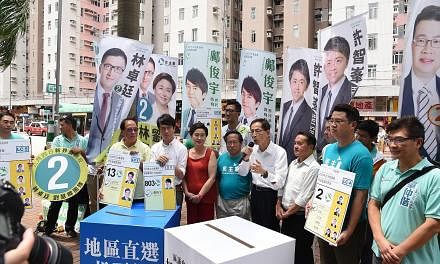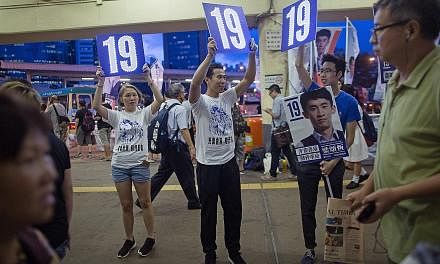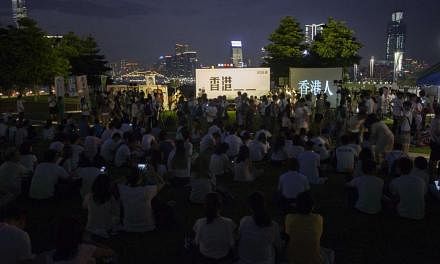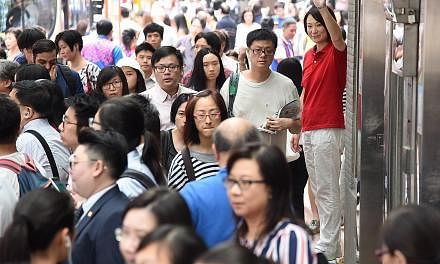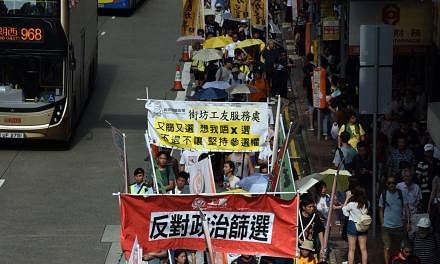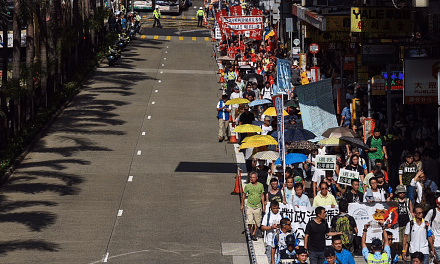HONG KONG - Hong Kongers have sent several young radical politicians into the city's legislature in a landmark election that could lead to increased tensions between the city and the Beijing government.
Localists have managed to secure at least seven seats in Sunday's (Sept 4) Legislative Council (Legco) Election, beyond the expectations of analysts.
With more than 90 per cent of the polls counted by noon on Monday, the opposition camp, which includes the pan-democrat and localist candidates, looks set to garner at least one third of the 70 seats in Legco, giving them the power to overturn decisions of the government in Legco.
The "significant" number of seats won by localist candidates is a stern rebuke of Chinese President Xi Jinping's policies and Chief Executive Leung Chun Ying's administration in trying to squeeze Hong Kong's democracy and restrict freedom, said political analyst Willy Lam.
The youngest candidate Nathan Law, 23, came in second to pro-Beijing incumbent Regina Ip, with a surprising high number of votes. Mr Law received 13.5 per cent or 50,818 votes, while Ms Ip got 60,760 of the total 376,675 votes for the six-seat Hong Kong Island constituency where there were 15 candidates.
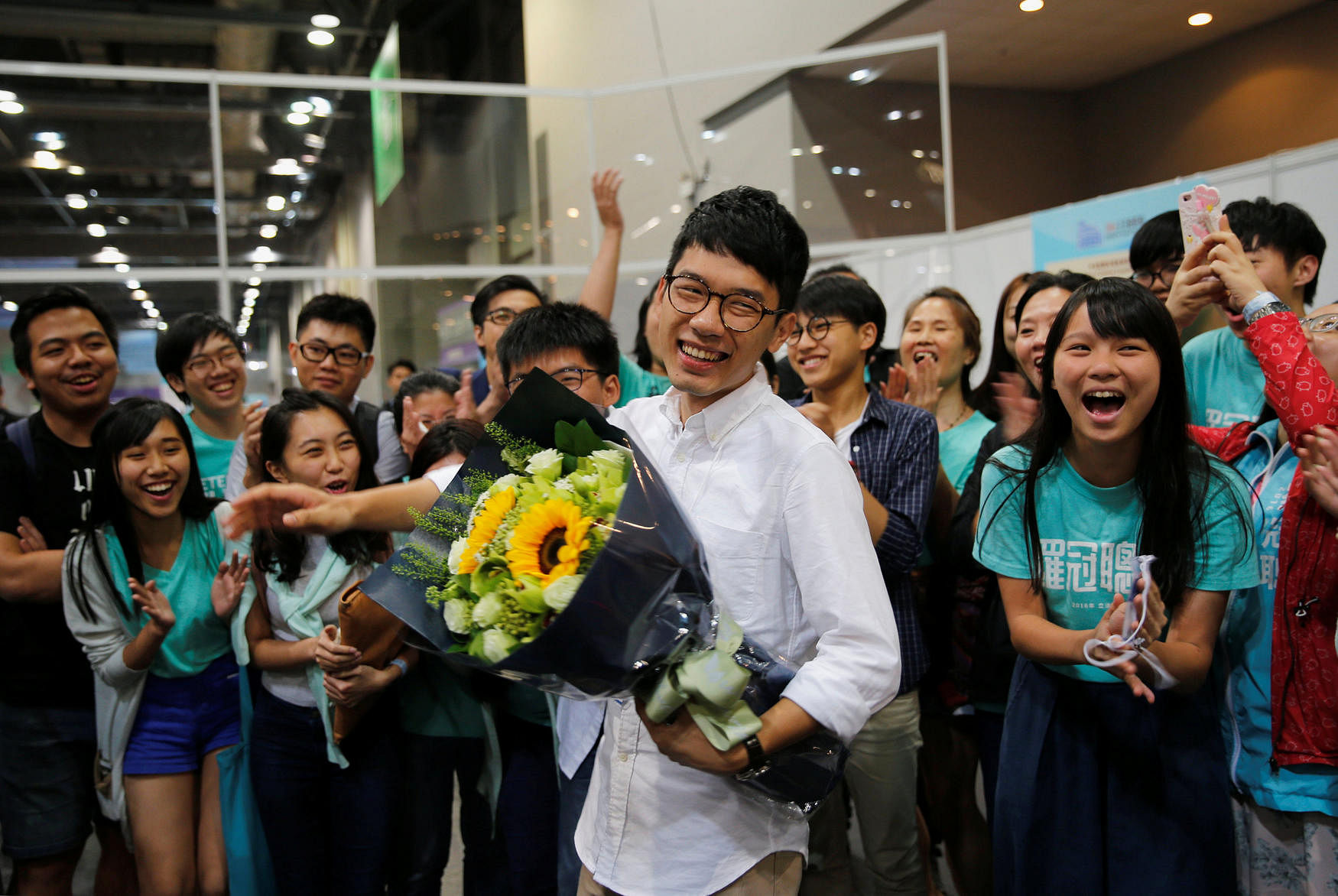
A number of localist candidates like Mr Law were relatively unknown until after the Occupy Central protests in 2014 which saw thousands of students camping out in the streets demanding greater autonomy and democracy for the city.
Sunday's polls, the first major one after the massive protests two years ago, saw a record turnout of 58 per cent, with some 2.2 million Hong Kongers going to the ballot. Many were still queueing to cast their vote after the 10.30pm deadline on Sunday and polling stations stayed open till 2.30am the following day.
Dark horse candidate Eddie Chu, 38, an independent, garnered the highest number of votes of all the candidates. More than 84,000 Hong Kongers in New Territories West voted for the social activist known for his campaigns to preserve Hong Kong's heritage.
Hong Kong has always been a largely conservative society with people more focused on making a living, but the results have shown a shift in how Hong Kongers view politics.
The record turnout is evident that Hong Kongers are concerned about their future and how the city is going to be governed, analysts said.
Analysts also noted a generational change, with voters wanting members of the new generation to represent them in Legco. Veteran lawmakers like pan-democrats Lee Cheuk Yan and Cyd Ho from the Labour party lost their seats, despite having a good track record in serving voters.
With a new generation of lawmakers, the new legislature will be "more divided" and will lack leadership said Professor Lau Siu Kai, who expects lawmakers to compete with one another more intensely in the Council.
Many will be more inclined to take the radical path, said Prof Lau, vice-chair of the Beijing-backed Chinese Association of Hong Kong and Macau Studies.
Agreeing, political analyst Ivan Choy said: "If the localists try to move some motions on self-determination, they would have touched the most sensitive nerve of Beijing."
And Dr Lam expects Beijing to use the radical actions of the localist legislators to restrain Hong Kong's pace of democracy even more.
When that happens, these legislators are likely use unconventional tactics and spend a lot of time fighting on the streets after realising they can't do much in the Council which will still be dominated by pro-Beijing camp.
And that could mean less stability for Hong Kong after all.
